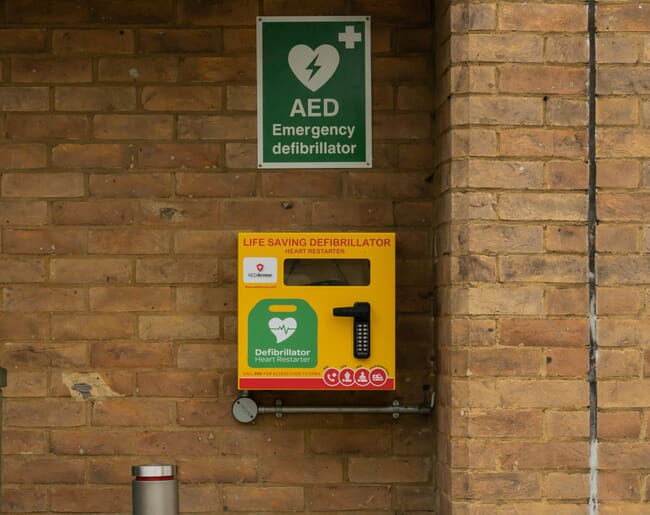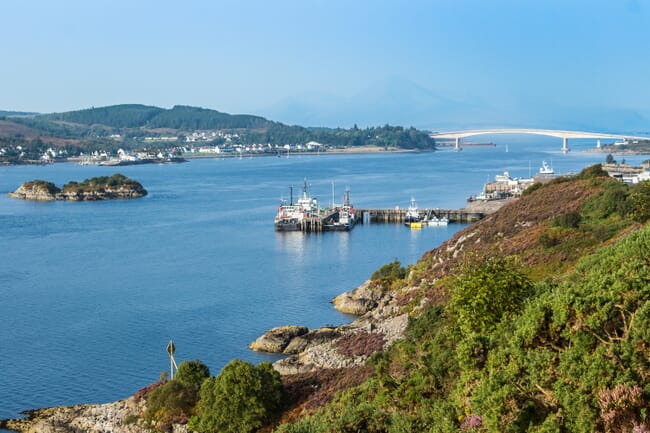
Several companies have now either installed or helped to fund heart-starting devices in some of the country’s remote areas, which are all available for use by residents and visitors as well as any staff who might need them.
Scottish Sea Farms has installed 15 defibrillators so far and has produced an online interactive map to pinpoint their exact locations. They are also registered with The Circuit, the national defibrillator network that provides a guide to where the machines can be found throughout the UK. The company now has seven defibrillators in Shetland, three in Orkney, three on Mull and two in the village of Barcaldine, Argyll.
Tavish Scott, chief executive of Salmon Scotland, said, “It is widely known that getting hold of and using a defibrillator quickly in the event of someone going into cardiac arrest can vastly improve that person’s chance of survival.
“Dozens of these devices are now available in some of Scotland’s most remote and rural areas thanks to the farm-raised salmon sector, many of which are available for public use in an emergency.
“Our members are committed to supporting the local communities in which they operate, and this is just one of the examples of how they are making improvements.”
Cooke Aquaculture has also been installing 12 defibrillators at its shorebases and office locations, all of which were purchased through the charity Lucky2BHere. In January, one of the men delivering a vanload of defibrillators to Shetland for Cooke fell ill - resulting in his brother using one of the devices on him. The 61-year-old was able to have his chest monitored with the help of his brother while they waited 30 minutes for an ambulance. Cooke is installing six defibrillators in Shetland, two in Orkney and four in mainland Scotland and in Cumbria.

Meanwhile, seafood company Mowi has installed defibrillators in almost all its farming site locations in Scotland, with a total of 30 which can be used by local communities if required. It has also supported or fully-funded another seven devices organised by community groups over the past three years.
And on Skye, Organic Sea Harvest is in the process of installing a defibrillator outside a shop in Staffin, which will be available for use by residents and tourists. It is the first of three devices the company hopes to provide. Another is planned for one of Organic Sea Harvest’s work boats that sits in the bay in Portree, with the aim of making it available to the Royal National Lifeboat Institution. Organic Sea Harvest is providing the defibrillators through its community fund which allows local groups and charities to apply for money to support community projects.
There are around 3,200 out-of-hospital cardiac arrests in Scotland every year, and only one in 10 people survive.
Every minute without CPR or defibrillation leads to a 10 per cent decrease in the patient’s chances of surviving, meaning the use of defibrillators can dramatically improve survival rates.
James Jopling, head of British Heart Foundation Scotland, said, “We’re delighted that Salmon Scotland have taken the life-saving decision to install defibrillators in 15 communities across the country and register them all on The Circuit.
“There are around 3,200 cardiac arrests outside of hospitals each year in Scotland but just one in 10 people survive. In the event of the ultimate medical emergency, someone performing CPR and having access to a defibrillator that’s visible to ambulance services could really be the difference between life and death. We’re urging all organisations large and small in Scotland and across the UK to follow Salmon Scotland’s example. It could save lives.”




